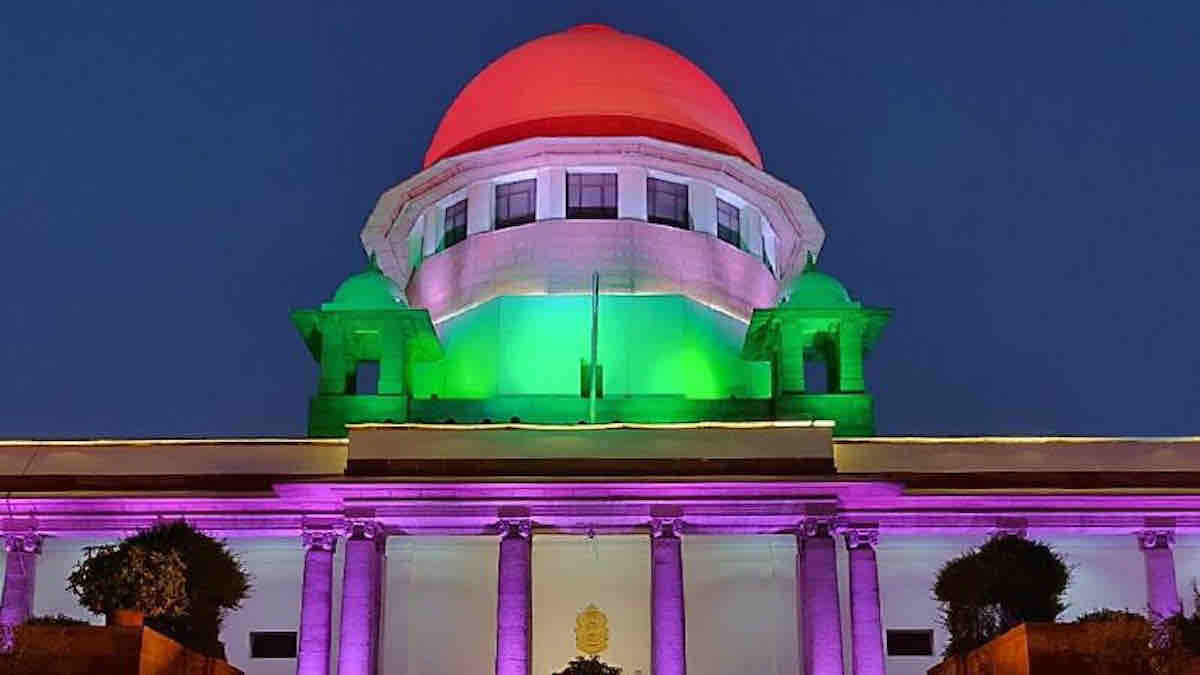The Supreme Court on Thursday took note of a “mismatch” between the data of the Department of Justice in the Union law ministry and the Odisha government’s communication to the ministry on the utilisation certificates of the central assistance released to the state in 2018-19 and 2019-20 for judicial infrastructure.
The court directed that a meeting be convened within two weeks between the Department of Justice, the law secretary of the Odisha government and others to ensure the reconciliation of the utilisation certificates that are stated to have been submitted by the state.
A bench headed by Chief Justice DY Chandrachud observed that the data made available before it by Additional Solicitor General (ASG) Aishwarya Bhati, who appeared in the court on behalf of the Centre, indicated that an amount of Rs 35.69 crore was released to Odisha for 2019-20 and for 2020-21, 2021-22 and 2022-23, no funds were released.

The bench, also comprising Justices P S Narasimha and J B Pardiwala, observed that according to a note from the Department of Justice, the utilisation certificate for the unspent balance of Rs 22 crore for 2019-20 has not been submitted.
It referred to a report submitted by senior advocate Vijay Hansaria, who is assisting the court as one of the four “amici curiae” (friends of the court) in the matter pertaining to infrastructure and filing up of vacancies in district courts.
The bench observed that the report contains a communication dated December 17 last year, which was sent to the Ministry of Law and Justice by the Odisha government.
The court noted that according to the communication, the state has already utilised more than 75 per cent of the central assistance released in financial years 2018-19 and 2019-20, and the utilisation certificates for the same have also been furnished to the Union government.
“There is evidently a mismatch between the data given by the Department of Justice and the communication of December 17 of the state government,” the bench said.
It directed that in order to reconcile, a meeting be convened within two weeks between the Department of Justice, the Odisha law secretary and others, including the registrar general of the Orissa High Court.
“The purpose of the meeting shall be to ensure reconciliation of the utilisation certificates, which are stated to have been submitted by the state government,” the bench said.
It said the meeting may be fixed either physically or on an online platform.
In his report submitted to the apex court, Hansaria, who is assisted by advocate Sneha Kalita in the matter, said even for the current financial year 2022-23, an amount of Rs 60.4 crore has been allotted for which an action plan has also been submitted. However, the funds are yet to be released.
It said the high court report states that proposals under the state sector scheme (SSS) for 2023-24 for Rs 722.49 crore have been submitted to the Odisha government.
The bench asked the counsel representing the state in the matter regarding the proposal for Rs 722 crore.
“This is money which is required for the judiciary,” the bench said, adding, “You people have to realise that the high court is serving the citizens of Odisha. The high court is not pocketing this amount.”
The report submitted by the amicus curiae said as regards acquisition of land for new courtrooms, there has been a delay as the district administration and government departments have not given a no-objection certificate (NOC) for the use of land by the judiciary.
It said the Odisha government, on the high court’s recommendation, has established the Judicial Infrastructure Management Agency for monitoring the infrastructure of the state judiciary.
The report said the Centre has issued an office memorandum (OM) dated March 23, 2021, laying down the procedure for the release of funds under the centrally-sponsored scheme (CSS), according to which each state is required to designate a single nodal agency for the implementation of each CSS.
The amicus curiae sought the apex court’s directions, including one to the Centre and the state to disburse the amount for the construction of court buildings and improvement of infrastructure in terms of the high court’s proposal within a time frame fixed by the top court.
“In case of non-disbursal of the fund by the state government, the central government may be directed to disburse the same at the first instance, subject to a final adjustment to be made by it with the state government, as per the sharing pattern,” the report said.
On the issue of the demand for funds of Rs 722 crore, the bench directed that the Odisha government shall file an affidavit within two weeks, indicating the steps taken in this regard.
On land acquisition, the bench directed that an affidavit be filed within two weeks, indicating the exercise of identifying land for the construction of court buildings and residential quarters.
The amicus curiae, in his report, has also given the number of existing vacancies in Odisha’s district judiciary.
According to the report, the number of sanctioned posts in Odisha is 1,001, of which 107 judicial officers are not holding courts, and thus, the effective strength of judicial officers holding courts is 894.
It said the number of existing vacancies is 174, while the numbers of court halls and residential units available are 812 and 706 respectively.
The report said the high court has also underlined the requirement of 123 additional courtrooms.
The bench, which dealt with the matter concerning the district judiciary in Odisha, said it would deal with aspects concerning other states on February 7.
In 2018, a bench headed by the then chief justice of India Ranjan Gogoi had taken suo motu cognisance of more than 5,000 judicial officers’ posts lying vacant in district courts and sought the responses of all the high courts and states.







